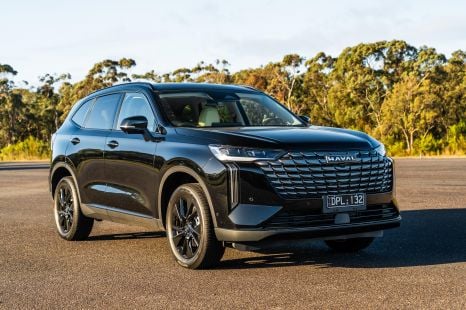

Josh Nevett
2025 GWM Haval H6 review
1 Month Ago
Chery is back for another bite of the Australian market, and promises its new Omoda 5 is a proper global model benchmarked against the best.
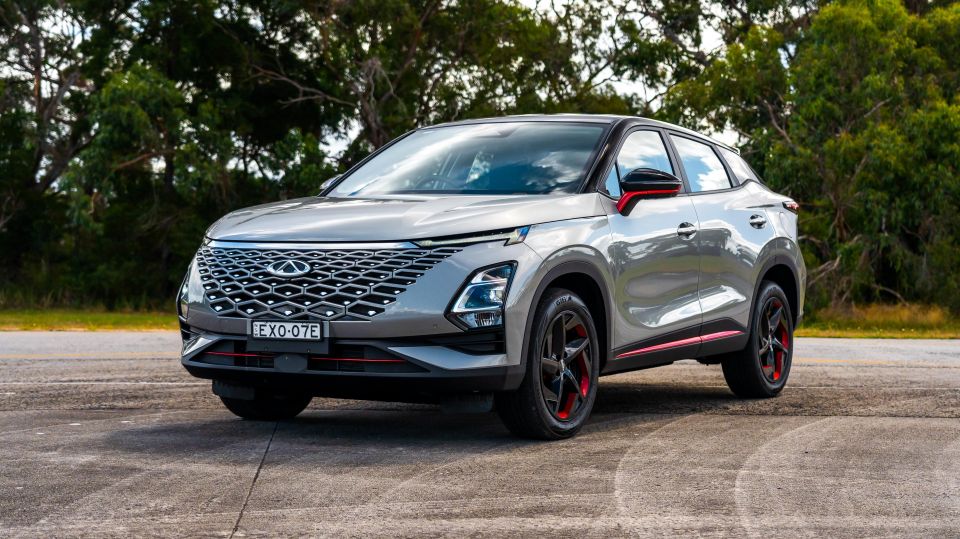


Quickly see how this car stacks up against its competition. Select any benchmark to see more details.
Where expert car reviews meet expert car buying – CarExpert gives you trusted advice, personalised service and real savings on your next new car.
There’s no way we can talk about Chery’s re-entry into the Australian market with the Omoda 5 without addressing the elephant in the room: its initial, truncated run here from 2011 to 2014.
It was hard to take it seriously. One of its models was a pretty blatant clone, something the company used to be guilty of (General Motors even sued it once), while even Chery’s name and logo seemed utterly derivative.
Chery was part of the initial wave of Chinese brands in Australia, most of which specialised on either dirt-cheap utes (Great Wall, JMC, ZX Auto) or dirt-cheap passenger cars (Chery, Geely).
All of them ended up leaving after just a few years apart from Great Wall (now GWM), which rebooted itself and is now in an enviable position with much more competitive products.
A rising tide can lift all boats, and a maturing Chinese automotive market – not to mention a desire for global sales – has seen Chery evolve to offer the kind of safety, infotainment and powertrain technology Chinese buyers have come to expect, as well as customers in other markets.

Chinese automakers have advanced dramatically over the past 10 years and, while that’s not to say there aren’t still some duds rolling off factory lines in the Middle Kingdom, it’s no longer a land of blatant clones and recycled 1987 Daihatsu Charades and Austin Maestros.
The Chery brand may be older than rival Great Wall Motor’s Haval nameplate, and pre-date SAIC Motor’s acquisition of MG, but at a corporate level it’s not all that old. It was founded in 1997, over a decade after Great Wall Motor and four decades after SAIC Motor.
That makes it more of an upstart than said companies, and likewise in Australia it’s returning to a market that MG and GWM have become firmly entrenched in.
The Omoda 5 is the first of a range of vehicles Chery will bring here, with the larger Tiggo 7 Pro and Tiggo 8 Pro following later this year. A more powerful engine option will also join the Omoda 5 range later this year, with an electric version following in 2024.
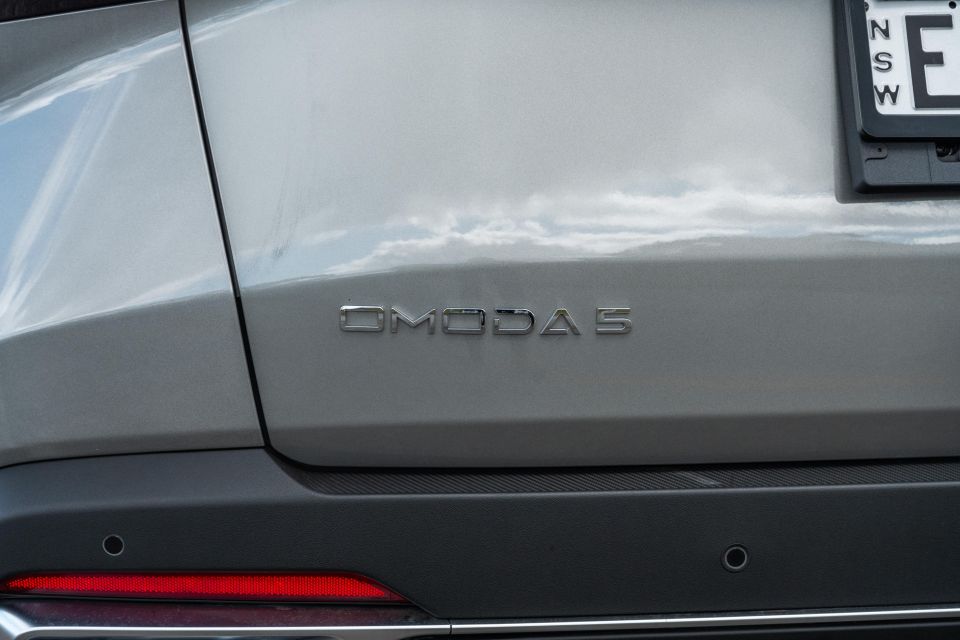
The company says the Omoda 5 is its first truly global model, simultaneously developed in left- and right-hand drive and benchmarked against the Mazda CX-30, Hyundai Kona and Toyota C-HR.
Those are some heavy hitters in the small SUV segment, so does the Omoda 5 stack up? And can it topple more established Chinese players like the MG ZST and GWM Haval Jolion?
The Omoda 5 range opens at $29,900 before on-road costs for the base BX, rising – for now – to $32,900 before on-roads for the EX featured here.
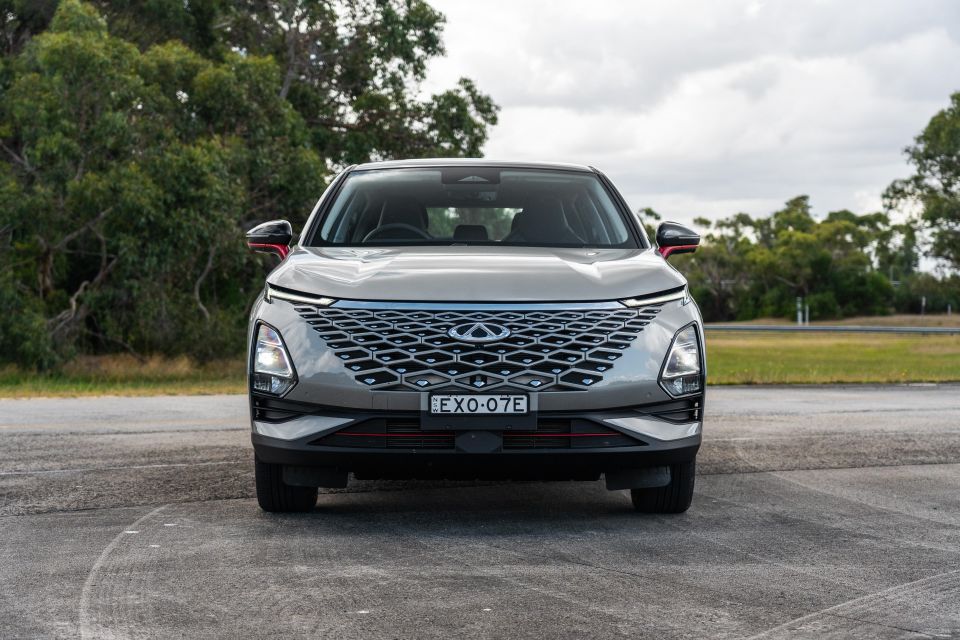
Drive-away pricing is between $31,990 and $32,690 for the BX, depending on state, while the EX ranges from $35,190 to $35,890.
While one could argue Chery is trying to avoid the comparison with its failed 2010s run by not giving the Omoda 5 completely bargain basement pricing, we question the merit of pricing this upstart model above its key competitors.
The Omoda 5 has a higher base price than the GWM Haval Jolion Premium ($28,490 drive-away), while the EX is more expensive than the Jolion Ultra ($33,990 drive-away) and top-spec MG ZST Essence ($34,990 drive-away).
For reference, a Mitsubishi ASX can be had for $32,240 before on-road costs in GSR trim, with the Japanese brand currently offering it at $35,340 drive-away for New South Wales buyers.
The Omoda 5’s look is perhaps vaguely reminiscent of the Nissan Qashqai at the rear, but Chery’s designers have given it a memorable look – it’s far from a copycat design like the brand’s old QQ and J11. There are some funky colours available too.
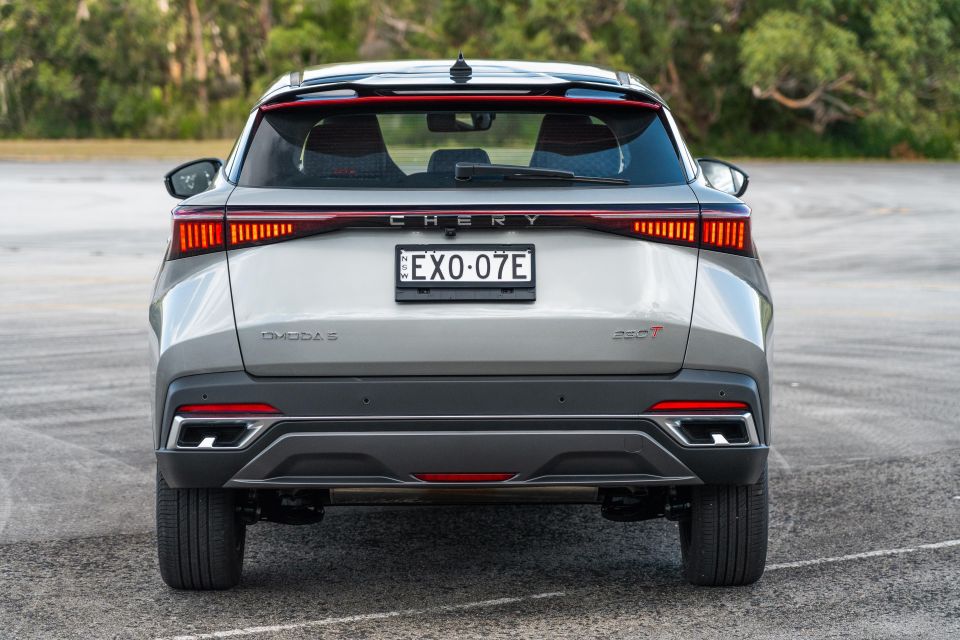
The grille is an acquired taste but it’s unlike anything else, while we feel the rear three-quarter is perhaps the car’s best angle. It’s got some nice shoulders on it, and in EX guise it has distinctive red highlights including on the rear spoiler and the wheels; the brake calipers are also finished in red.
Chery has also employed some flashy lighting both inside and outside the car. Puddle lights project “Omoda” onto the road, while there are dynamic indicators at the rear.
Even the key fob makes a solid impression. It has some heft to it, though there’s no way to actually attach it to anything. Valets will be inconvenienced.
By the way, that 230T badge on the back corresponds to the car’s torque output.
The interior, like the exterior, offers plenty of flash. There’s some substance here, too, but the technology still has some bugs to be ironed out.
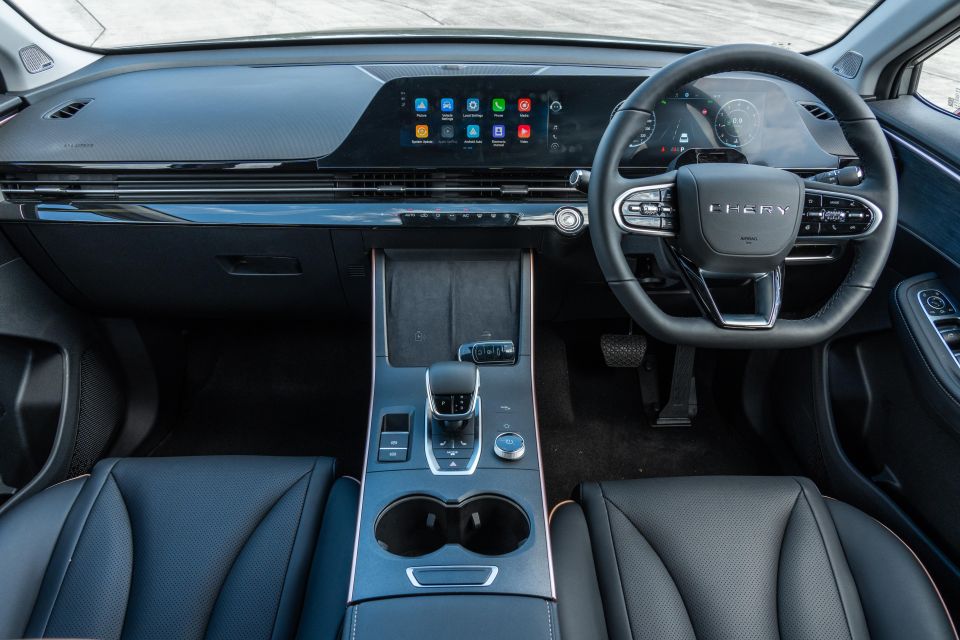
The car unlocks as you walk towards it with the key. You open the door and listen to a weirdly long welcome sound, and press a start button that could have come from a Mercedes-AMG. The digital instruments come to life, and are neat if unexciting in presentation; there are also three themes to choose from.
The touch-capacitive climate controls are neatly integrated and you can use them to adjust the cabin temperature, though touching any of them also brings up the climate menu.
Further along that panel is a patterned ambient light element visible at night, while ambient lighting in the doors pulsates to the music.
The steering wheel and shifter look as though they’ve come out of a more expensive car. The wheel is thick, flat-bottomed and leather-wrapped, with solid, metal-like switchgear and the Chery wordmark instead of the brand’s logo. It looks like it could have come out of the company’s more expensive Exeed or Jetour premium SUVs.
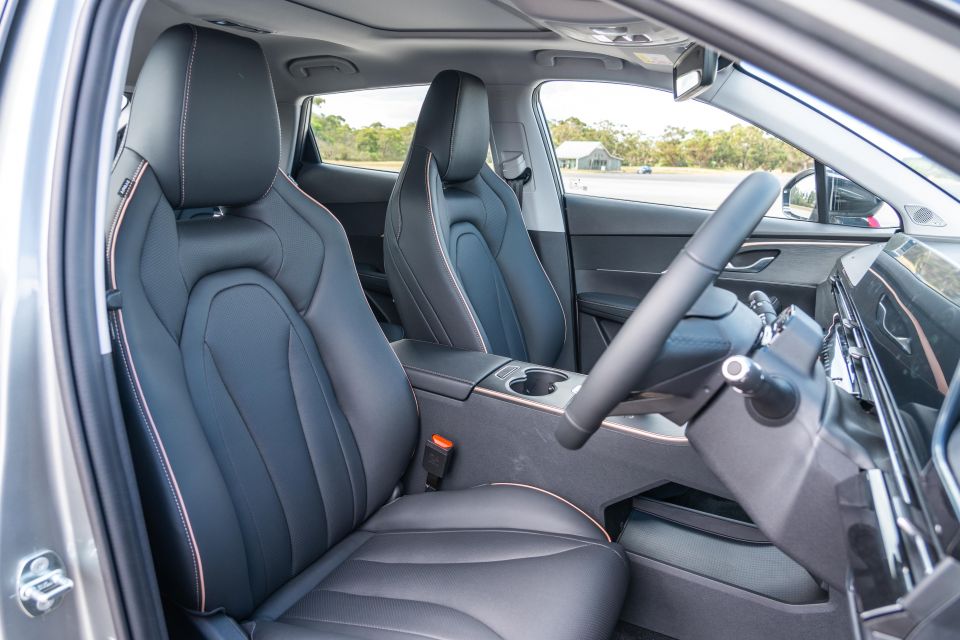

The monostatic gear shifter is also a nice touchpoint. It’s positioned on a centre console with a distinctive dark, speckled finish, with a couple of touch-capacitive switches including a Home button for the infotainment.
What appear to be two wireless charging pads – only one of them is, the other is for the key – rise upwards to the centre stack. They’re finished in a felt-like trim and look like they come from the same supplier Tesla uses.
Copper-coloured accents run along the sides of the centre console and provide contrast, though it’s not as though the Chery features too much of the same material. Rather, there’s perhaps too much going on, with around five different materials used on the front doors alone.
Some of it, like the brushed metal-like trim on the doors, is nice but some of the material choices are questionable. The dash top looks a bit cheap but it’s at least soft-touch, while the tops of the doors and the glove compartment lid are finished in particularly cheap-looking plastic. The leatherette on the arm rests also feels very thin.

The assembly that comprises the digital instrument cluster and infotainment touchscreen looks like a bit of an afterthought, and produced more than a few creaks.
There’s a voice assistant you can program to respond to your voice prompt of choice, while sound is pumped through a Sony eight-speaker sound system. It’s not quite as good as the familiar name would suggest but it’s not bad, either.
If you want to charge something up front, there’s a USB-A outlet and a USB-C outlet located on the passenger side of the centre console. Good thing the smartphone mirroring is wireless so you don’t have to awkwardly reach over to plug your phone in.
If wireless Android Auto stays connected, you’ll enjoy dropout-free connectivity. If you can’t get it to connect in the first instance, it’s pretty much a write-off, and turning off and on the car won’t fix it unless you leave it for a while.

On at least three occasions, we experienced the same issue with Android Auto.
My phone said it was connected, the icon wasn’t greyed out on the touchscreen, but if I pressed it I received the confounding message: “Start Android Auto? Use your phone apps on the car screen. Starting Android Auto”.
So which is it? Are you asking me or telling me? Has it started or has it not?
There’s a solution that doesn’t involve parking the car for an extended period of time, but it didn’t work particularly well: reach over to the passenger side, plug in your phone, go to the Local Settings menu, and press Android Auto next to your phone.
But while this made Android Auto visible, it was distorted and hard-to-read, and all the buttons were misaligned. It was especially frustrating as there’s no factory navigation to fall back on.
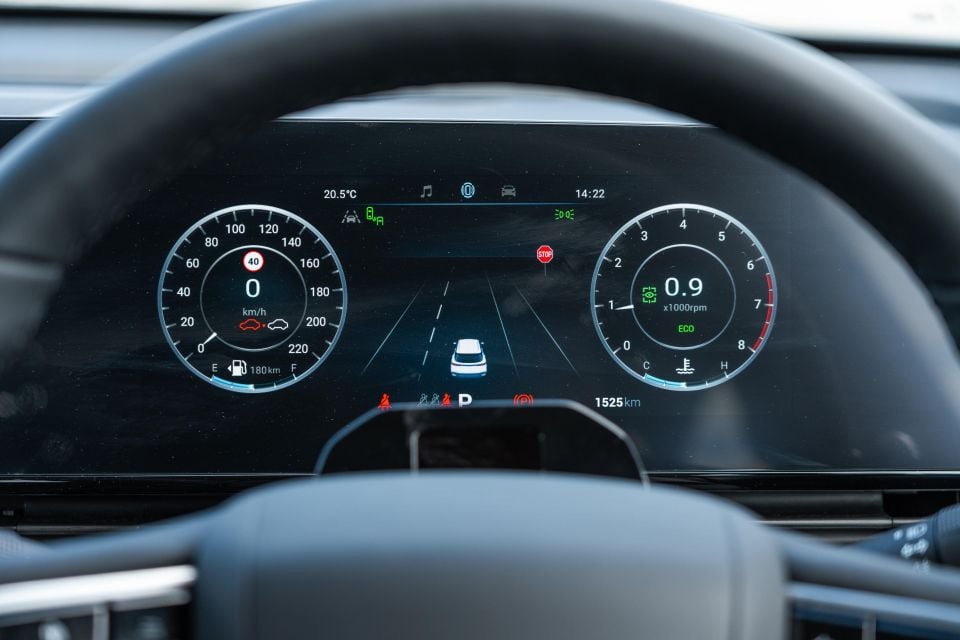
While we’re griping about the in-car tech, we’d also note the presentation of both the cluster and infotainment isn’t as slick as that in a Haval Jolion.
There are shortcut buttons on the touchscreen including a Home button, but they’re blocked by the steering wheel.
Storage is a strong suit of the Omoda 5. The centre console is bin and extends under the centre console’s cupholders, while there’s also an expansive shelf under the centre console. Bottle holders in the doors can also easily swallow large bottles.
The front seats are squishy in typical Chinese fashion, though they have a base that’s a bit too short and lack much in the way of bolstering. Nevertheless, they proved comfortable over longer drives.

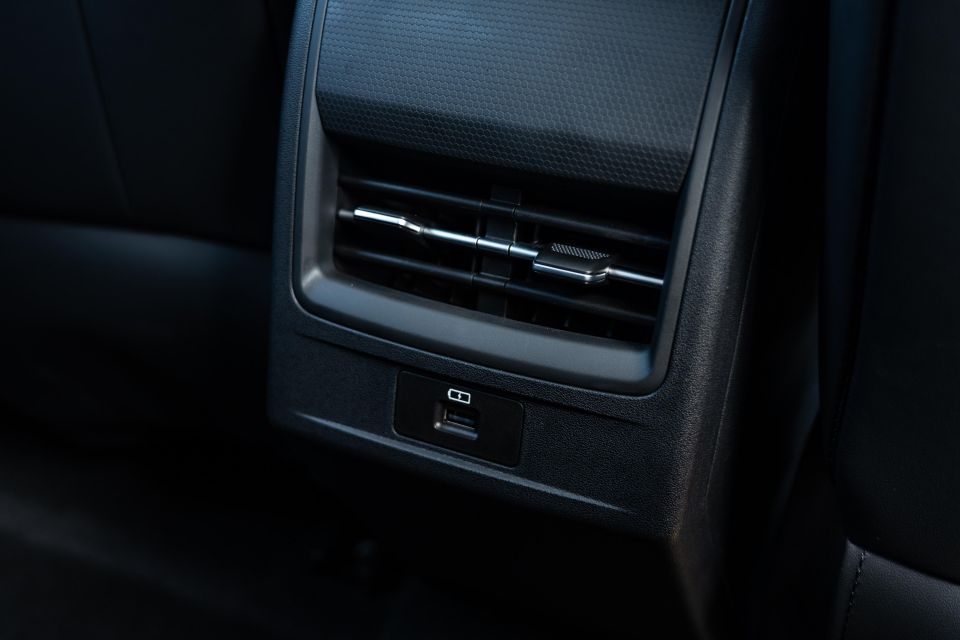
Initially, the rear of the cabin didn’t appear particularly spacious but the Chery proved to have enough space for 180cm-tall occupants to be comfortable both front and rear.
There’s sufficient headroom for someone that height even with the sunroof, and the hump typically found ahead of a vehicle’s rear-centre seat is minimal.
In terms of amenities, there are air vents, a single USB-A outlet, and map pockets on the seatbacks. There are no passenger-side exterior lock sensor, but with the Chery’s walk-away locking function that’s not too bad.
The presence of a power tailgate is also welcome; it’s a rarity in this segment.
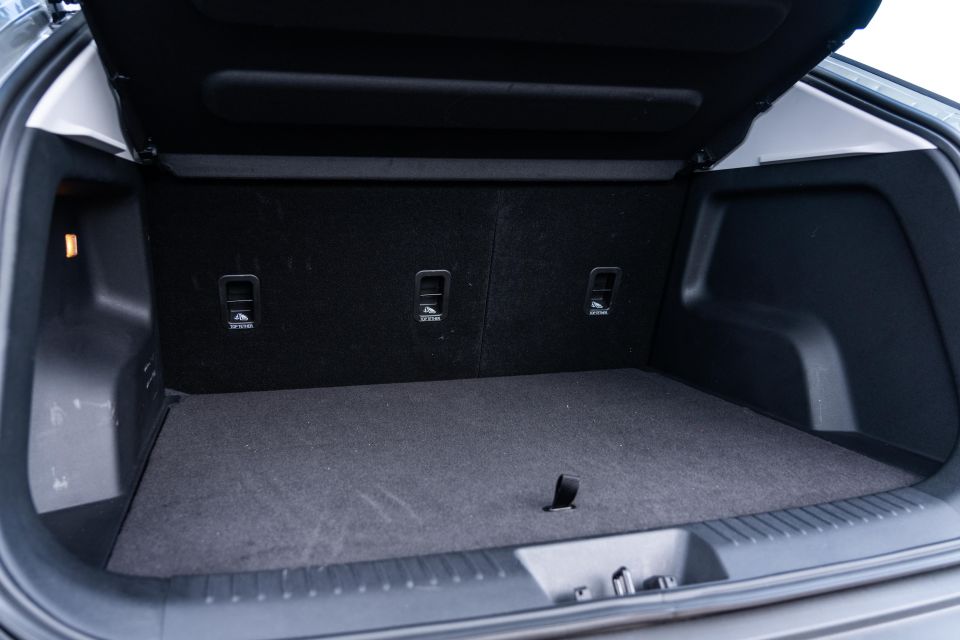
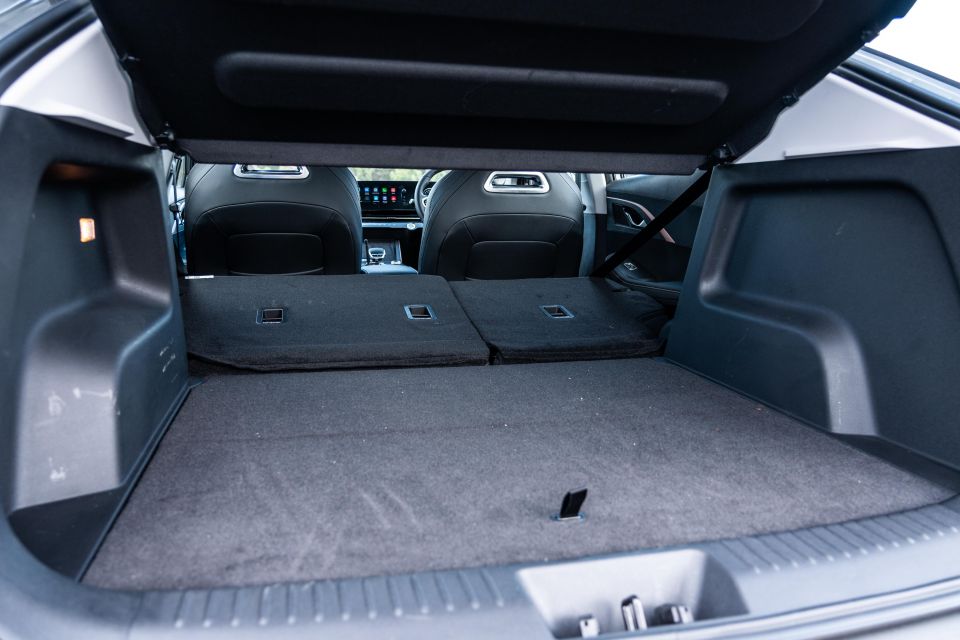
The Omoda 5 has 360L of boot space with the rear seats up, expanding to 1075L with them folded. That’s less than the Jolion (430L/1133L) and ZST (395L/1187L).
A space-saver spare sits underneath the boot floor.
One unusual complaint we had was with the interior rear-view mirror. It’s oddly distorted, and doesn’t look like a typical rear-view mirror.
The Omoda 5 uses a 1.5-litre turbocharged four-cylinder engine producing 115kW of power and 230Nm of torque. Drive is sent to the front wheels only.

Those outputs are fairly par for the course in this segment. A Jolion Ultra produces 110kW and 220Nm, a ZST Essence 115kW and 230Nm, and an ASX GSR 123kW and 222Nm.
Later in the year, a turbocharged 1.6-litre engine will join the Omoda 5 range and bring with it multi-link instead of torsion-beam rear suspension, plus the option of all-wheel drive. This slightly larger mill produces 145kW and 290Nm.
Unlike the rival GWM Haval Jolion and MG ZST, the Omoda 5 uses a continuously variable transmission (CVT) instead of a dual-clutch automatic. The upcoming turbo 1.6-litre variants, however, will employ a seven-speed dual-clutch.
Chery claims a 0-100km/h time of 9.9 seconds, but we recorded a 9.24-second sprint.

Where expert car reviews meet expert car buying – CarExpert gives you trusted advice, personalised service and real savings on your next new car.
The company also claims combined cycle fuel economy of 6.9L/100km. It runs on 91 RON regular unleaded fuel and has a 50L fuel tank.
Over a loop consisting of inner-city, suburban and highway driving, we saw 9.3L/100km. Over the course of a week, we saw fuel consumption eventually drop to an average of 8.4L/100km, but this was with a lot of highway driving.
Those figures aren’t impressive at all, though we can hope fuel economy will improve as the car is broken in.
What good is a long list of standard driver assist equipment if a chunk of it doesn’t work properly?
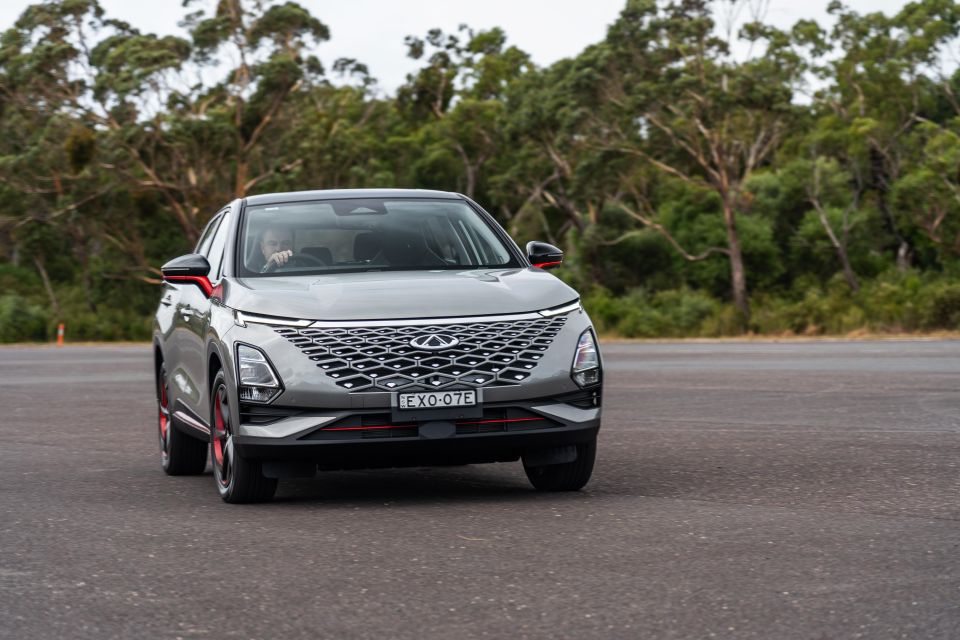
Take the driver attention monitoring, for example, which uses a camera atop the steering column pointed at you. It simply doesn’t work.
The system chimes incessantly, displaying increasingly alarmist messages including “You’ve been distracted for a long time” and the cryptic “The driver monitoring system exception!”. Yes, there are a few poor translations in this car.
On one circa-20km stretch of freeway, it went off 21 times despite the fact I had my eyes on the road the whole time and wasn’t wearing sunglasses. And no, I wasn’t turning to face my passenger while driving like some character in a movie.
Considering how it simply didn’t seem to recognise my eyes, it genuinely seems like it would keep going off even if I had my eyes prised open Clockwork Orange-style.
On one curvy road in Ballarat, the Omoda 5’s driver monitoring system went absolutely nuts. It started chiming without interruption for 30 seconds.

You can turn the system off, but it will turn right back on when you restart the vehicle. And on a few occasions, I noticed it turning itself back on when I fiddled with other driver assist system settings.
Then there’s the lane-keep assist, which jerks the steering wheel alarmingly even if you’re perfectly centred within your lane. This at least can be turned off and left off, unlike the emergency lane-keep function that defaults to on.
Chery must have a different definition of “emergency” to us, because it’s almost as intrusive as the lane-keep assist and jerks the steering wheel with reckless abandon.
Like GWM, the Omoda 5 offers a little animation in the instrument cluster showing what vehicles are in the lanes ahead.
But the calibration of even this simple feature is all off, too – it comes back on constantly even if you flick to another screen, and the vehicles within the lanes in the animation, even your own, move around erratically and distractingly.
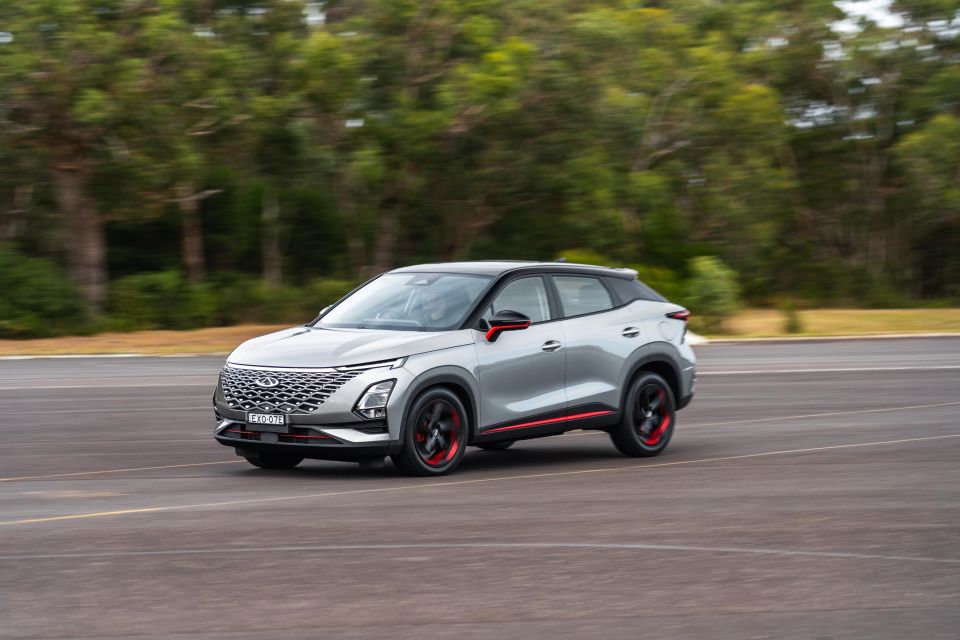
The traffic sign recognition also made numerous errors. No, I don’t think the Western Freeway’s speed limit is 30km/h.
You can at least turn all of these features off, but you can’t address the Omoda 5’s other deficiencies on the road with the push of a button.
The Omoda 5’s steering is completely devoid of feel. It’s light, so it’s quite easy to weave around a parking lot, but the lack of communication makes the Omoda 5 feel awkward and ponderous to steer around a corner.
Sport mode doesn’t appear to add any weight to it, either. The tiller feels over-boosted; you seem to turn the wheel lightly and you’re already at full lock. There’s no progressive feel to it, and it simply doesn’t inspire confidence.
We took the Chery on some regional Australian roads, because somebody had to – Chery concedes it didn’t do any local testing, and this shows.
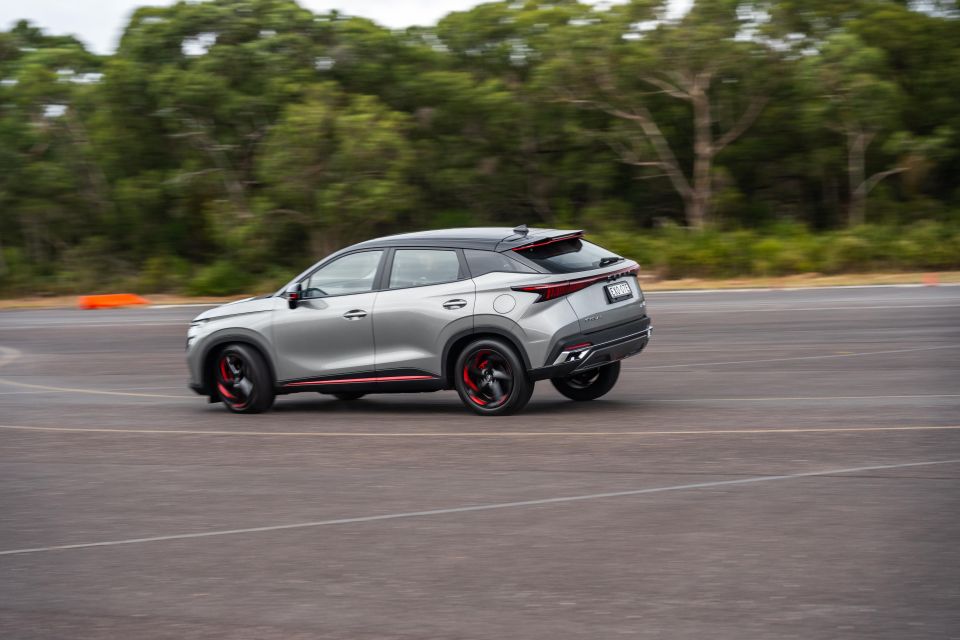
The Omoda 5 is very softly sprung which means that, while bumps and ruts generally don’t send shudders through the structure – apart from some infrequent impact harshness at the rear – the car porpoises down the road.
You mightn’t do a lot of rural driving, but this issue is present even on a typical inner-city freeway, with the Omoda 5 heaving over expansion joints.
There’s too much rebound, and the end result is a floaty, ponderous ride. Throw in the vacuous steering and you’ve got a car that’s no fun to drive. Chery said it benchmarked the Hyundai Kona and Mazda CX-30, but those two could run rings around this.
The Chery does better in a straight line, but highway driving isn’t fault-free, either. There was a peculiar amount of wind noise emanating from around the sunroof at highway speeds, even though it was closed. Tyre roar also creeps into the cabin, and it gets a bit boomy the faster you get.
There’s an occasional odd sound from the engine that creeps into the cabin, but it’s fortunately quiet.

We also observed the occasional creak over rougher road, which appeared to have been coming from the screen/instrument cluster assembly.
It’s not all bad, mind you. The powertrain is easily the best part of the Omoda 5’s dynamic package. The turbocharged 1.5-litre four is relatively gutsy, and it avoids sounding too strained though there was the occasional odd sound coming from the engine bay.
In the context of its competitive set, it’s not a bad engine. Because there’s a good amount of torque available down low, you don’t have to work the Omoda 5 too hard and you therefore avoid the noisy rev-flaring of rivals like the Mitsubishi ASX.
In our experience, the Omoda 5’s CVT is a smoother unit than the Jolion’s dual-clutch. There are no paddle shifters, though there’s a manual mode you can play with by moving the shifter.
There’s an electronic park brake with an auto hold function. If you turn the latter on, it’ll default to on when you restart the vehicle. That’s one setting we’re happy to turn back on with each restart.

Kudos to Chery for moving the indicators to the correct (right-hand) side in the conversion to right-hand drive, something key Chinese rivals didn’t bother with.
Activating the indicator will bring up the 3D surround-view camera on the infotainment system. This isn’t always necessary, but you can easily exit out of it.
The indicators are extremely quiet, and above a certain speed they seem to make no sound whatsoever. If you see Omoda 5s buzzing along the highway for several kilometres with their blinkers on, then, you’ll now understand why.
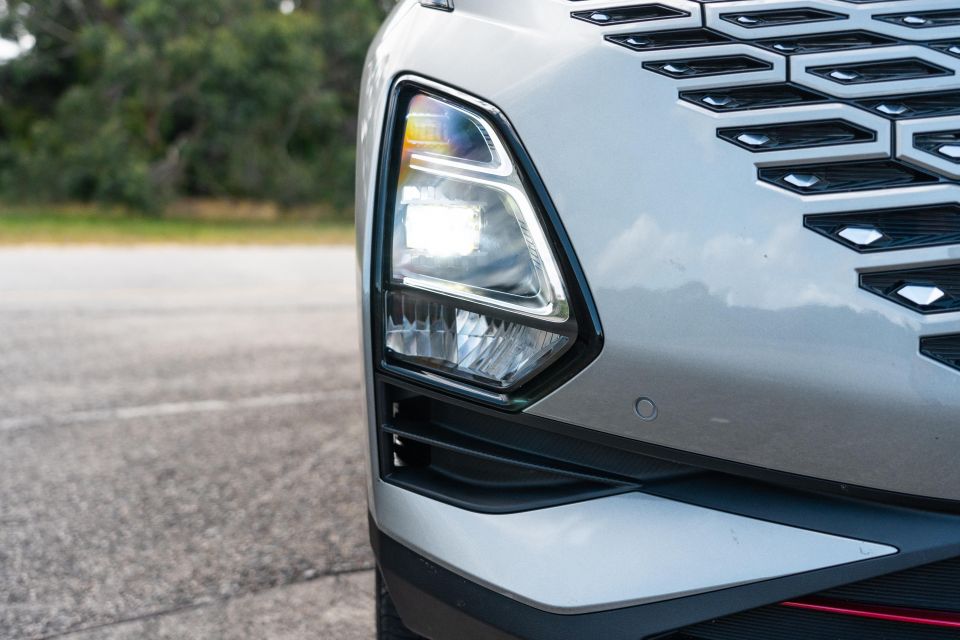
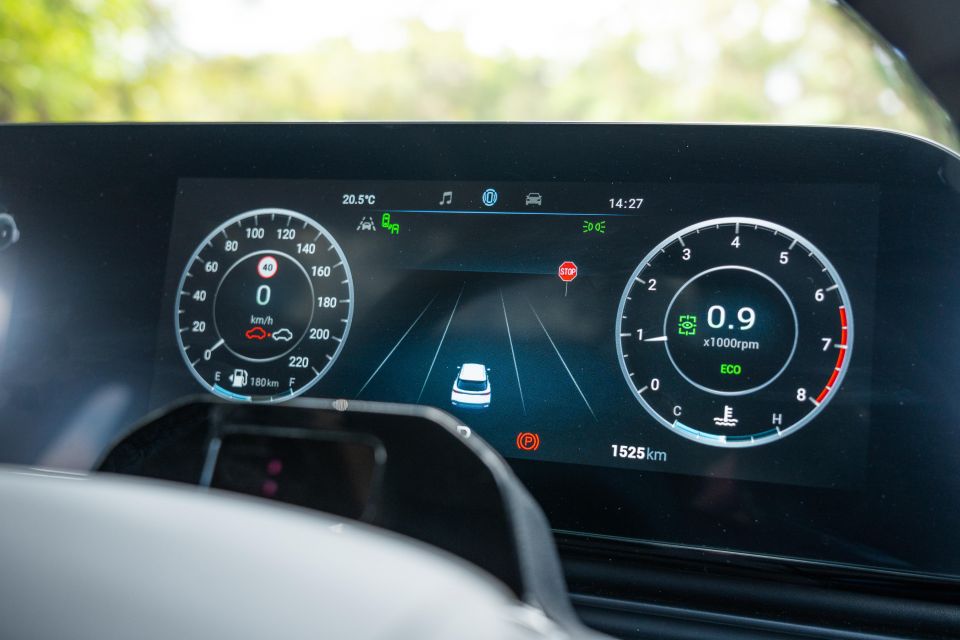


Omoda 5 BX highlights:
Omoda 5 EX adds:
Credit where credit’s due: the Chinese have generally upped their game when it comes to safety, even if some questionable performers like the MG 3 and LDV V80 linger.
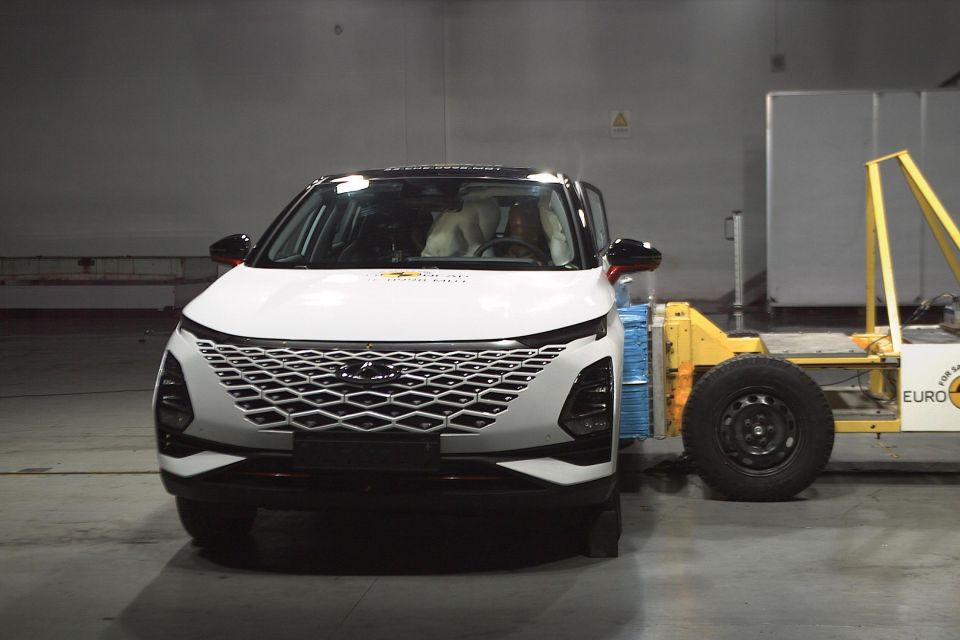
Many of us saw the old Jiangling Landwind fold like a cheap card table in safety testing years ago, and the first Chinese-brand cars sold in Australia also proved subpar. The old Chery J11, for example, managed only two stars in ANCAP testing.
The Omoda 5 has advanced leaps and bounds in terms of both crash safety and available driver assist technology, earning five stars from Euro NCAP in recent testing. That points to a possible five-star ANCAP rating, one more star than the MG ZST.
It received adult occupant protection and child occupant protection scores of 87 per cent, plus 88 per cent for the safety assist category and 68 per cent for vulnerable road user protection.
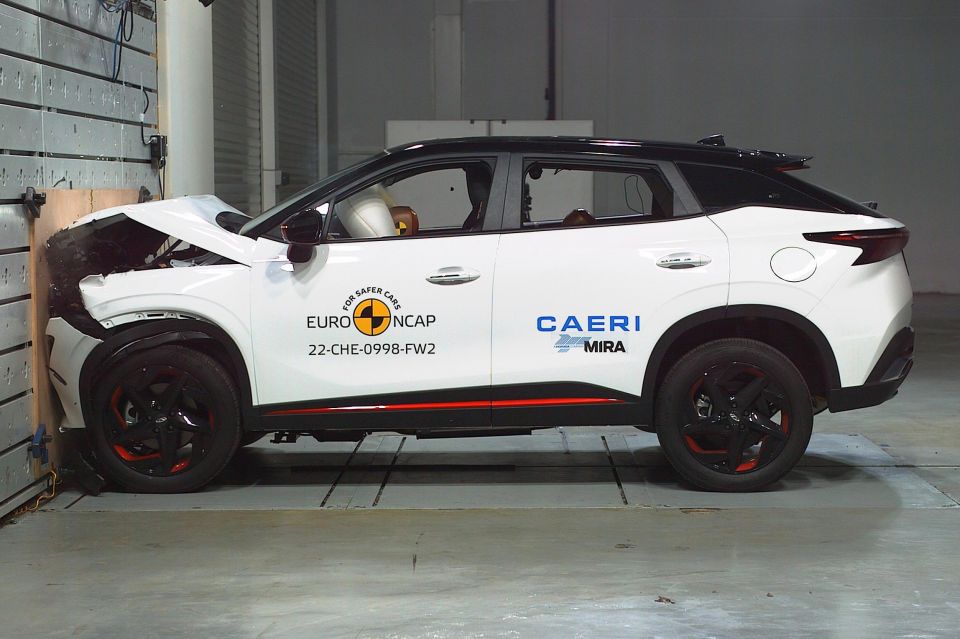
Standard safety features include:
The EX also receives a surround-view camera.
Chery backs the Omoda 5 with a seven-year, unlimited-kilometre warranty, seven years of roadside assistance, and seven years of capped-price servicing.
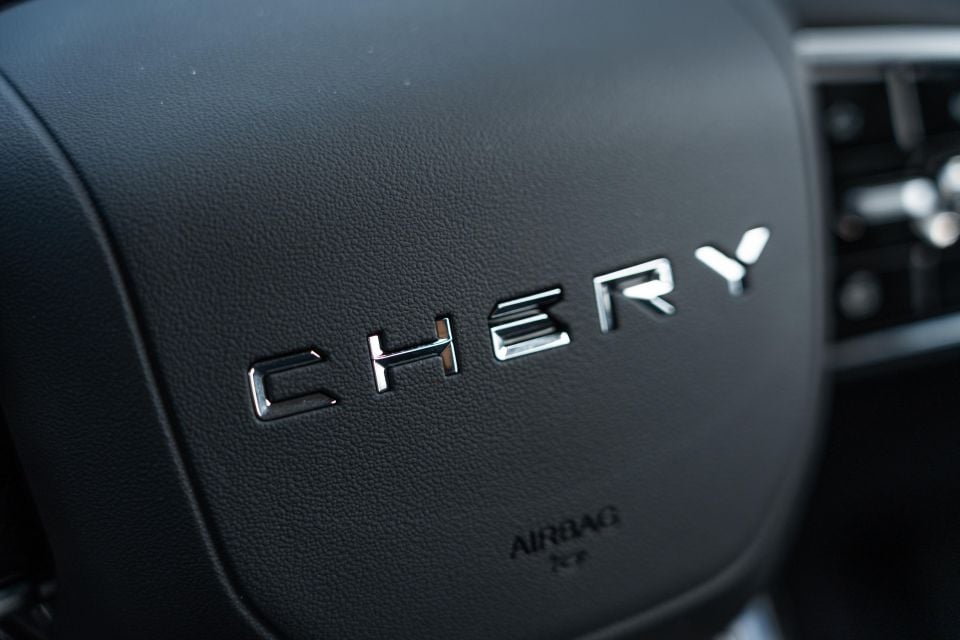
The first five services are capped at $280 each, with the sixth and seventh priced at $391.04 and $295.54, respectively. Intervals are every 12 months or 10,000km, whichever comes first.
GWM only offers five years of capped-price servicing for its Haval Jolion, working out to be $1550 against $1400 for the Chery. MG offers seven years of capped-price servicing for its ZST; it costs $1566 over five years.
The Chery Omoda 5 has a lot of showroom appeal, with its glitzy lighting, flashy red highlights, long equipment list, and modern styling inside and out.

Look below the surface, however, and the shine starts to come off of Chery’s new global model.
On the road, an eager powertrain is let down by a ponderous ride and woolly steering, while the cabin is noisy at highway speeds.
The calibration of the driver assist systems is simply unacceptable, and Chery needs to rectify this as soon as possible.
The issues I encountered with Android Auto also raised my blood pressure, and there are various nagging little issues with both the infotainment and instrument cluster. They detract from an interior that, some cheap materials aside, is otherwise quite appealing.
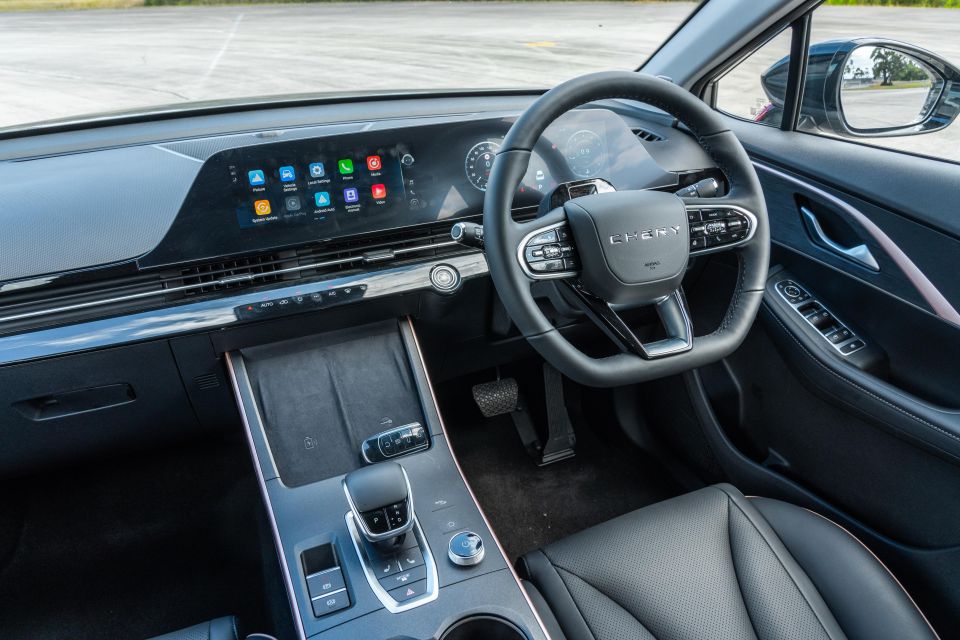
Chery says it doesn’t want to be positioned as a budget brand but as a technology-driven company. Well, it needs to get the technology right first.
It has priced the Omoda 5 above its more established Chinese rivals, but while neither the Jolion nor ZST are class leaders, we’d feel more comfortable recommending them over the upstart Chery.
There’s some potential here. With a local suspension tune – something Chery says it’s open to – and extensive recalibration of the driver assist features, as well as some more sound-deadening, the Omoda 5 could be made more pleasant to drive.
Until then, however, the Omoda 5 possesses more style than substance.
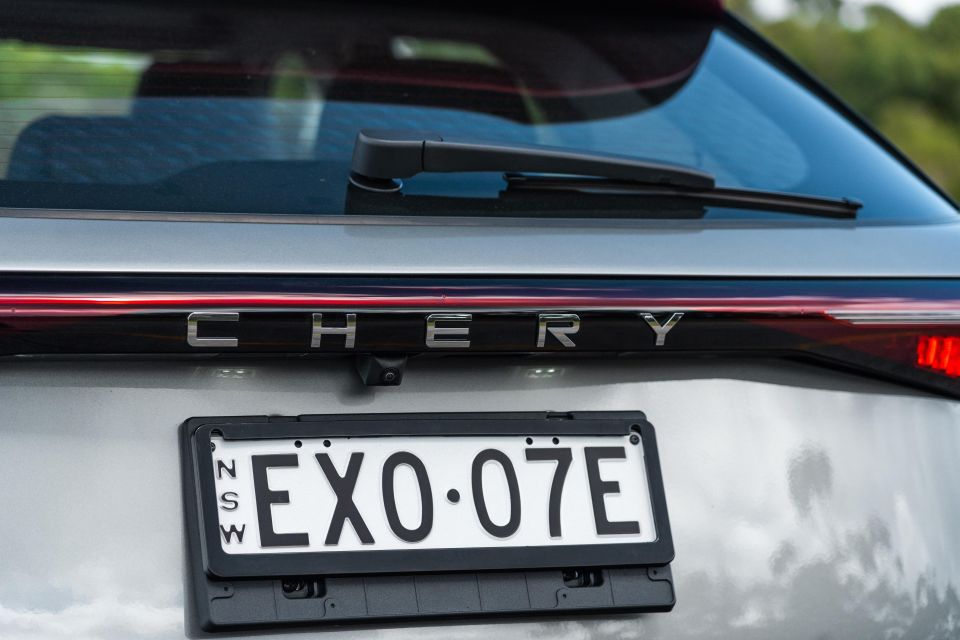
Click the images for the full gallery
MORE: Everything Chery Omoda 5
Where expert car reviews meet expert car buying – CarExpert gives you trusted advice, personalised service and real savings on your next new car.
William Stopford is an automotive journalist based in Brisbane, Australia. William is a Business/Journalism graduate from the Queensland University of Technology who loves to travel, briefly lived in the US, and has a particular interest in the American car industry.


Josh Nevett
1 Month Ago
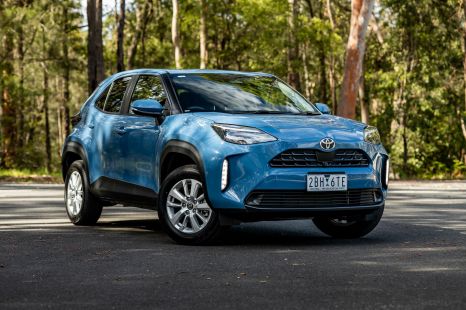

Matt Campbell
25 Days Ago
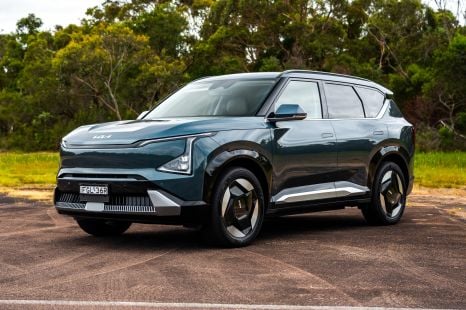

James Wong
18 Days Ago


CarExpert.com.au
11 Days Ago


Elle Baillieu
8 Days Ago
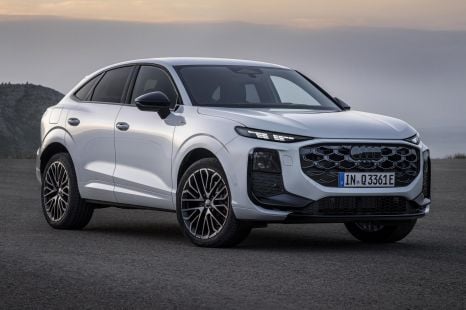

Derek Fung
4 Days Ago